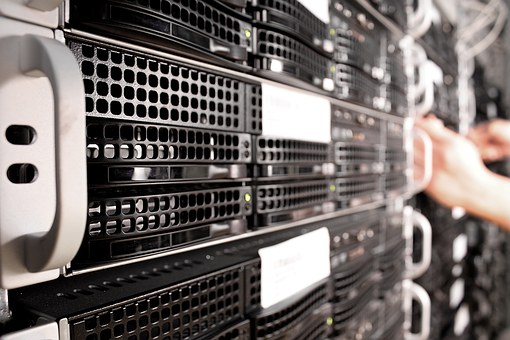Data has become the cornerstone of business. You can’t sell a product or service without generating some sort of data point–whether customer behaviours and preferences for marketing, or adjustments to the supply chain for tomorrow’s orders. The average company already processes some 162 terabytes of data. With the ever-expanding web of IoT, business owners can only expect a rise in volume.
One of the most pressing concerns today–for small vendors and global enterprises alike–is where to store that data. Even top management is paying attention, given the operations critical nature of data storage. Here are the pros and cons that can help guide big and small businesses alike.
Local Servers: Pros
Greater physical control and security
Local servers give business owners total physical control of their data. You can immediately access mission critical information, and are relatively more protected from third-party theft. In case of network outage, you still have access to your data, allowing you to run important programmes and keep your business running, even on a basic level. Storing data on-site also lets you act fast–you don’t have to wait for a third-party to fix your problems for you.
Faster processing
Some businesses have greater computing requirements than others. Analytics and data companies often have to crunch and access data hundreds of times a day. Hosting servers locally means less interference and dependence on your network’s performance, which is ideal for workloads and operations that are predicated on computing speed.
Helps you comply with laws
For some businesses, setting up locally isn’t optional. Organisations who store health, medical, or government-related information are often required by law to keep the data in secure, local servers.
Local Servers: Cons
Higher upfront costs
In-house servers are costly, especially in the beginning. Servers can cost anywhere from £400 to £1000, depending on how much memory, bandwidth, and computing power you need. And even if there are many servers that come out-of-the-box and ready to deploy for small businesses, you may still need to build parts like racks, or install components like patch panels for better cable management.
Higher maintenance costs
Servers are high-maintenance machines. Aside from the cost, business owners will need to factor in cooling and storage. Units can become quite hot, especially if you’re running them 24/7–some buildings turn off central cooling systems after work hours. Many businesses bring in separate AC units into their server rooms to keep units cool through the night.
Hardware won’t be your only responsibility. You will need to keep up with software patches and security updates to protect yourself against breaches and crashes. This task often lies beyond the skill set of the average individual, so you’ll have to hire a specialist to maintain your servers, and IT professionals aren’t cheap, with salaries of network engineers starting at £30k.
Cloud Servers: Pros
Constant up-time
Cloud-servers ensure your website stays up and functional, even when disaster hits your business. For businesses that need to constantly be online, like ecommerce vendors, this is critical. Local servers, while offering stronger control over security and accessibility, are also more susceptible to on-site accidents. Anything as simple as spilled coffee to city-wide power outages can cripple your operations. Cloud servers are often housed in specialised locations with failsafe measures in place, such as powerful backup generators. This also makes cloud servers perfect for reliably backing up data across your entire organisation and keeping it safe, even if disaster strikes.
Dedicated support
Most cloud-server providers offer ‘round the clock support. This is especially valuable for small to medium business owners who do not have technical expertise or an IT professional on their team.
Stable costs
A fixed, recurring fee protects you from unforeseen maintenance and repair costs. As you only pay for what you use, you get greater control over your finances.
Greater scalability
On the cloud, business owners can easily switch plans based on their growth. No need to buy new hardware, or suddenly find yourself with very expensive and obsolete equipment when reducing capacity.
Cloud Servers: Cons
Less control over incident responses
Cloud servers are typically secure, supported by a team of experts. However, the sheer amount of data is an alluring honeypot–cloud providers naturally attract cybercriminals. The safety of your data will largely depend on the skill of your data provider’s security team. Although most providers like Amazon run a fairly tight ship, organisations looking for wider control and custom security solutions may feel uneasy handing the reins over to a third-party.
Performance subject to Internet speeds
With the cloud, your connection to your data is only as strong as your and your service provider’s Internet connection. Internet outages on either side can cause major disruptions. Restoring data after such events is typically painfully slow, further prolonging the time you need to get your business back online.
Conclusion
Economically and technically, cloud solutions are best for typical small and midsize businesses. Servers are complicated machines and operational costs can easily balloon and hemorrhage your bottom line if you’re not tech-savvy. Meanwhile, bigger organisations and businesses who handle large volumes of data or sensitive information will want to look at local servers as investments in security and reliability.
*********************************************************************************************************





